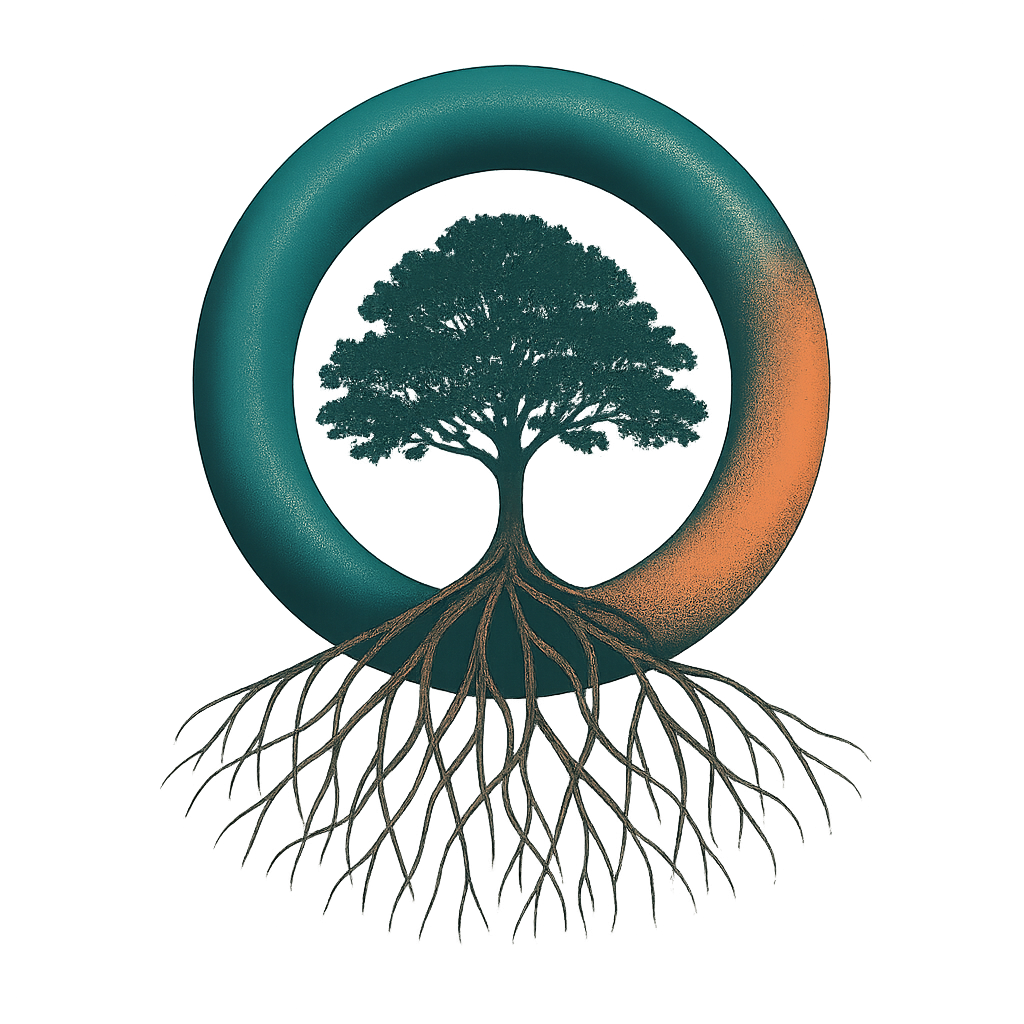Mangrove’s Manifesto
Coherence, Agency, and Adaptive Systems
We exist to fundamentally redesign the environment of human work.
For too long, the friction, chaos, and overwhelming admin burden faced by individuals—especially neurodivergent minds—have been pathologised as individual failures. We reject this. When systems are brittle, inefficient, and haven't been redesigned in decades, the resulting burnout and struggle are a design failure, not a personal one.
Our mission is to boldly and proactively design a better way.
1. The Core Principle: Human General Intelligence (HGI)
We view technology not as a threat, but as a catalyst to free up our Human General Intelligence (HGI) for its highest purpose: creativity, strategic thought, deep conversation, and joyful exploration. Our take on AI is AI-Human Collaboration—ensuring the technology adapts to us, not the other way around.
Our Foundational Beliefs:
The Design Signal: We treat friction—the daily struggle with admin, data storage, and endless meetings—as a vital design signal. If people are stressed, the system is broken.
Emergence and Coherence: Like a natural ecosystem, our R&D favours emergence, discovery, and constant iteration over brittle, top-down-designed systems. Coherence across all our systems—from coaching to internal R&D—ensures that what we learn in one area benefits all others.
Speculative Design: We are futurists. Our work goes beyond fixing today's pain; we are actively exploring and designing preferable and possible futures using the Futures Cone as our guide.
2. Neurodiversity as the Vanguard of Design
Mangrove was founded on a design challenge: What if a 'chaotic, massively associative' mind (often labelled ADHD) is looked at through a new lens: a completely valid cognitive style that has simply never been properly designed for?
Rejecting the Deficit Model: We reject the idea that individuals must accept lifelong 'hacks' and strategies to cope with perceived deficits in contexts where a system can be redesigned to mitigate or eliminate that challenge. In our design practice, if a system can be redesigned with modern technology, we must redesign it.
Validating Associative Thinking: We understand the well-known neurodivergent pattern of needing to externalise and verbalise thinking prior to organisation. Our tools, like the R&D behind EpochOS, are built to support this, treating it as a valuable input, not an obstacle.
The Protective Future: We believe this approach is fundamentally protective against burnout. It relentlessly pushes for ways of living and working that are in alignment with our natural rhythms, and constantly looks for ways to address friction through a design lens, never demanding better compliance, discipline or consistency from a human for whom that feels unnatural. It offers a huge element of hope—the hope that the unending road of personal adaptation and stress is over. We can eliminate huge sources of daily distress almost immediately by designing better systems.
3. The Research Engine: Hyper-Thick Description
Our consulting and coaching are not merely services; they are our Field Work—the crucial R&D that fuels the entire Mangrove system.
Metacognition & Self-Efficacy: As we move forward, our aim is that by engaging with our systems, individuals deeply understand their own rhythms, preferences, and ways of thinking. This self-discovery enhances their self-efficacy and agency by empowering them to become active designers of their own environments.
The Knowledge Commons: We gather rich, self-reported data that is unprecedented in scale and depth—a 'hyper-thick' description of human cognitive patterns. This data is processed through a privacy-respecting federated learning model to contribute patterns to a commons of knowledge, used for academic research and to feed back into the next iteration of EpochOS, compounding the benefits.
Whole-System Data: Our R&D is grounded in a whole-system approach. This includes the founder's unique, ongoing ‘n=1 data set, which combines biometric data (sleep, cognitive, somatic, logged via devices like Oura rings) with a phenomenally rich stream of long-form qualitative data. This stream—which includes upwards of 10 million words of dialogue with the AI system, braindumps, tangents, and deep dives over nearly a year—maps the founder’s entire cognitive process. By capturing loops of rumination or hyperfocus, forgetting, and re-learning, this massive, messy data allows us to deeply understand how a complex mind works and use this as a blueprint to design better, adaptive systems for all.
4. The Mangrove Ecosystem: Coherent R&D
Our structure ensures that all parts of the organisation reinforce the central mission.
Revenue <-> Research: Revenue generated from our consulting, coaching, and products flows directly back to support the Mangrove Fellows Program, which drives the R&D and testing of EpochOS.
Forever Learning: Our engagement allows us to capture new insights, bridge international and industry divides, and harness AI's massive pattern recognition power to iterate at speed.
The Design Lens: Everything—from a short workshop to a long-term partnership—is viewed through a design lens. We apply high-level tools, such as Category Theory, to map even the most complex cognitive patterns, supporting individuals to understand themselves better, as they naturally are.
We are not here to sell a quick fix; we are here to co-design a preferable, adaptive future. We advocate for systems that see the human first, the technology second, and the opportunity for redesign everywhere.
Link to Design Ethos Slide Deck Link to Canary Diagnostics page Link to HGI Link to Consulting Link to Workshops Link to Resources Link to Substack

